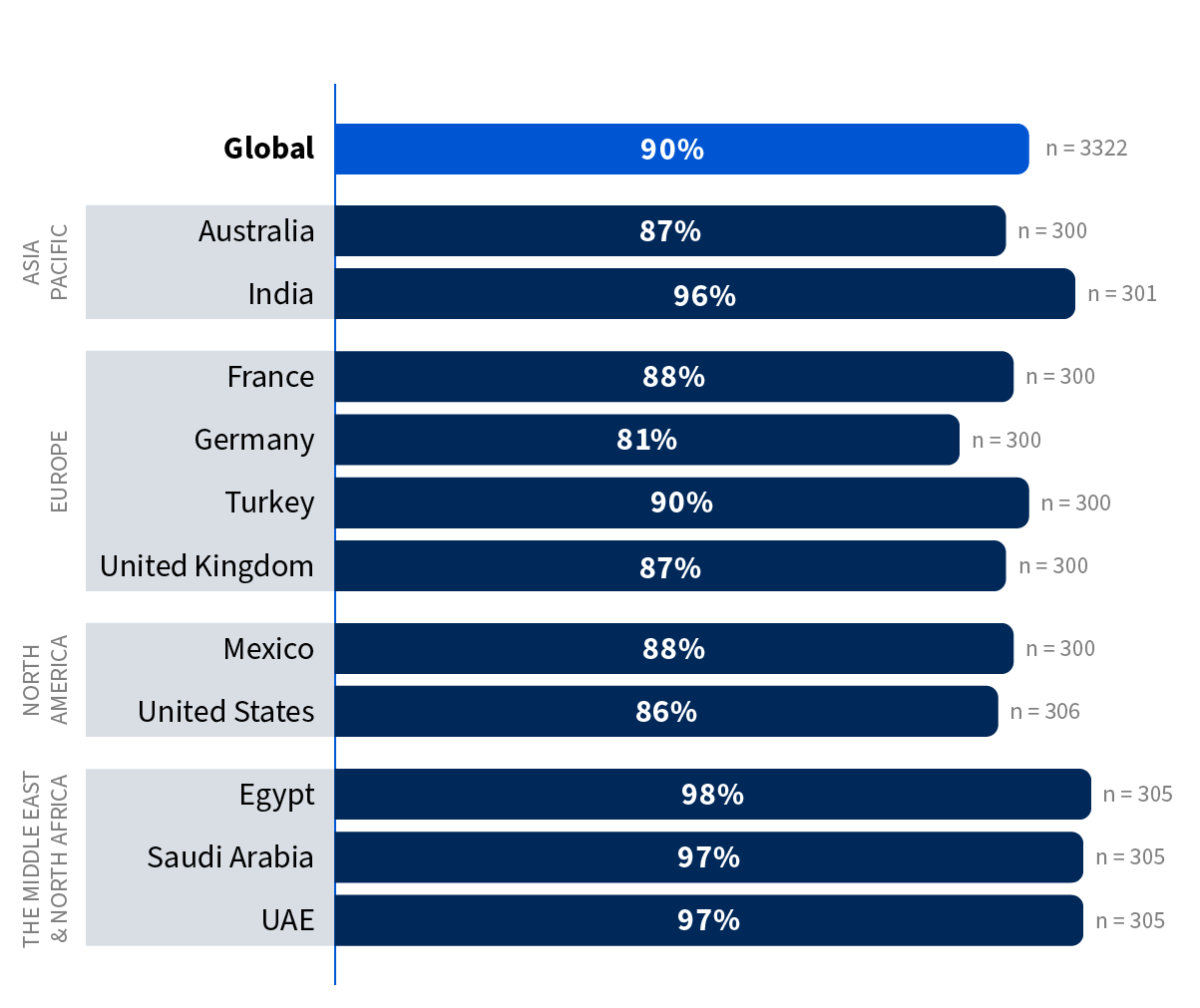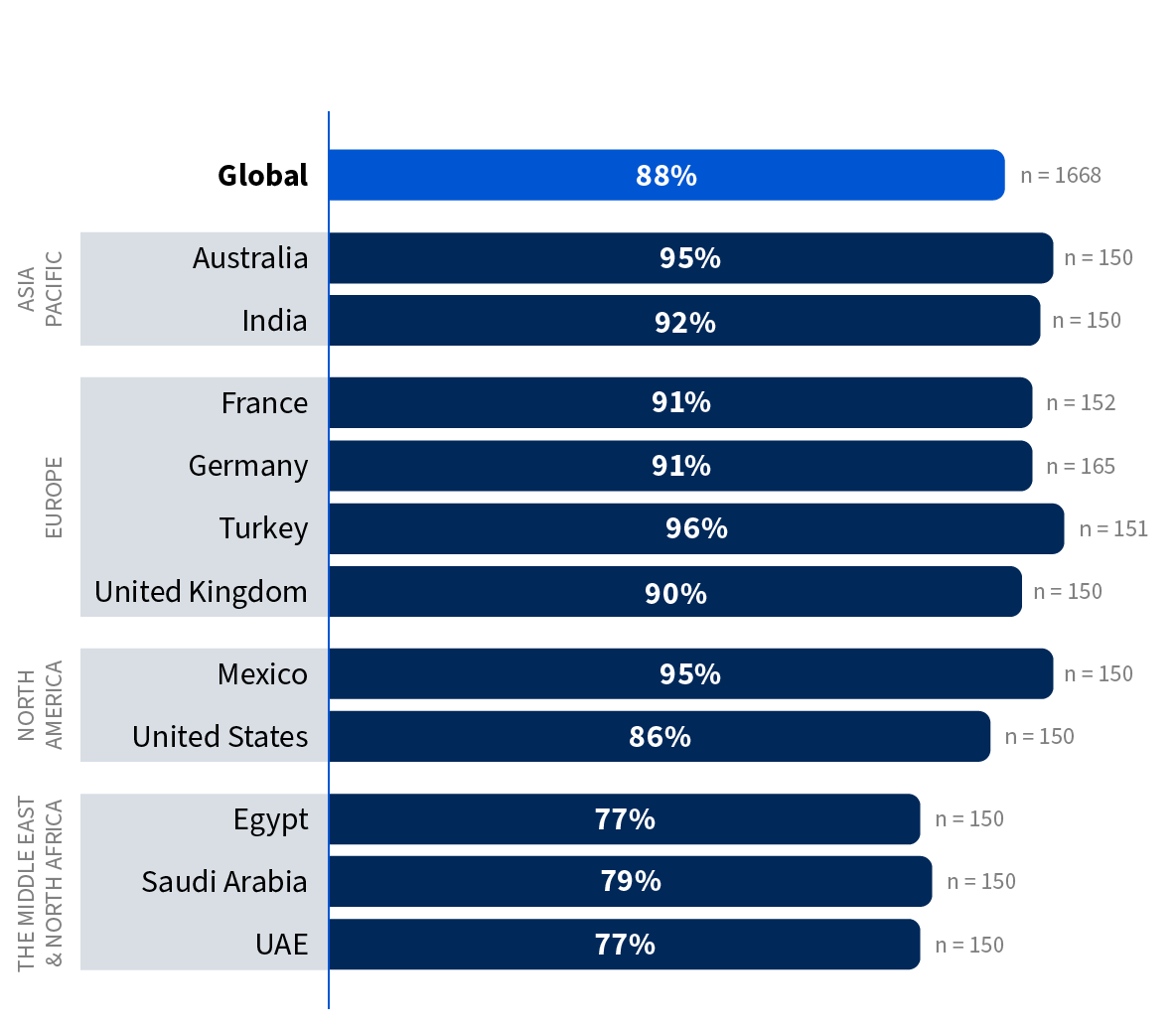Report
Advancing Higher Education with Industry Micro-Credentials
As an institution, you know how important it is to prepare students for the demands of the working world. At a time when students report being 76% more likely to enroll in a degree program that offers industry micro-credentials like Professional Certificates from Coursera, it’s all the more critical to integrate such micro-credentials into your curriculum.
Professional Certificates from Coursera are one of the most popular industry micro-credentials among both students and employers across the globe, according to new research conducted by Coursera in Advancing Higher Education with Micro-Credentials.
This in-depth report reveals the value of Professional Certificates in enhancing higher education, drawing on insights from nearly 5,000 students and employers in 11 countries: Australia, Egypt, France, Germany, India, Mexico, Saudi Arabia, Turkey, the United Arab Emirates, the United Kingdom, and the United States.
Download the PDF or see the preview below.
Get perspectives on how industry micro-credentials can:
- Boost student employability.
- Enhance the value of degrees.
- Influence the shift towards skills-based hiring.
The future of learning is skills-based
The jobs students want today, and the skills required for them, are changing. By 2025, advances in digitalization, data, and artificial intelligence are projected to create up to 97 million new jobs while displacing 85 million existing ones.
As the global talent shortage widens, higher education institutions must lean into equipping students with job skills that will power the new, digital economy—from data analysis and software engineering to UX design and digital marketing.
Students trust that an industry micro-credential will help them secure a job
Ninety percent of students around the world either agree or strongly agree that earning a Professional Certificate will help them stand out to employers and secure a job when they graduate. By supplementing current degree programs with industry micro-credentials that teach job skills like project management and data analysis, higher education institutions can attract students that are focused on employment outcomes.
Figure 1: Standing out and getting a job (students)
Question: Earning a Professional Certificate will help me stand out to employers and get a job when I graduate. (Agree or Strongly Agree)

Employers believe that industry micro-credentials help a job candidate stand out
Eighty-eight percent of employers believe that Professional Certificates will strengthen a candidate’s job application. The survey results confirm that in addition to a degree, employers are looking for hard skills and core competencies like coding or database management. Demonstrable job-based skills enhance the value of a degree for both students and employers globally. This is important for higher education leaders to focus on as they decide to enhance their programs with micro-credentials like Professional Certificates.
Figure 4: Strengthening a candidate’s job application(employers)
Question: Earning a Professional Certificate strengthens a candidate’s job application (Agree or Strongly Agree)

Explore more global perspectives and gain insights into individual countries
Get the full report to explore key insights for institution leaders, including:
- How Professional Certificates connect directly to employment outcomes
- How Professional Certificates complement degree programs
- How you can drive student retention, career outcomes, and new revenue streams by offering Professional Certificates
The evidence is pretty clear, universities need a subtle shift... The real secret sauce? Do the traditional education, but pair it with digital skills to prepare your students to go into the workforce with the basic skills they’ll need.
